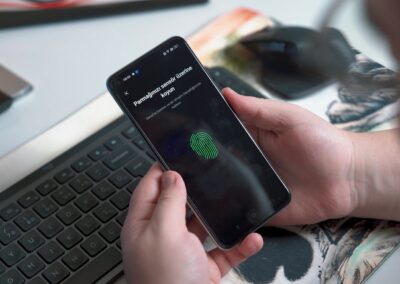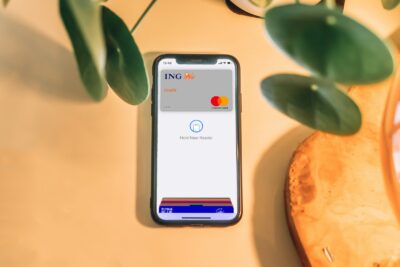Streamlining Financial Services with Digital Identity Verification
The Rise of Mobile Banking Apps in Saudi Arabia and the UAE
Mobile banking apps have revolutionized the way financial services are delivered, particularly in regions like Saudi Arabia and the UAE. With the rapid adoption of modern technology, these apps have become essential tools for both consumers and businesses. In Saudi Arabia, the government’s Vision 2030 plan aims to digitize the economy, and mobile banking is a key component of this initiative. Similarly, the UAE’s commitment to innovation has positioned Dubai as a global hub for fintech advancements. These apps not only offer convenience but also play a crucial role in enhancing security and efficiency through digital identity verification.
In Riyadh, for instance, leading banks are integrating digital identity verification processes within their mobile banking platforms. This integration allows customers to open accounts and authenticate transactions securely and swiftly. By leveraging advanced technologies like artificial intelligence (AI) and blockchain, these apps can verify identities in real-time, reducing the risk of fraud and ensuring compliance with regulatory standards. The adoption of such technologies aligns with the broader goal of fostering a secure and resilient digital economy in the region.
Moreover, mobile banking apps are instrumental in promoting financial inclusion. In the UAE, where a significant portion of the population comprises expatriates, these apps facilitate easy access to banking services without the need for physical branch visits. This accessibility is particularly beneficial in remote areas, where traditional banking infrastructure may be limited. By streamlining processes through digital identity verification, mobile banking apps contribute to a more inclusive and efficient financial system.
Integrating Artificial Intelligence and Blockchain for Enhanced Security
The integration of AI and blockchain technology in mobile banking apps has further enhanced the security and efficiency of digital identity verification. AI algorithms can analyze vast amounts of data to detect suspicious activities and prevent fraud. For example, machine learning models can identify patterns and anomalies that might indicate identity theft or fraudulent transactions. By continuously learning from new data, these AI systems become more adept at safeguarding users’ identities and financial information.
Blockchain technology, on the other hand, provides a decentralized and tamper-proof ledger for recording transactions and verifying identities. In Dubai, financial institutions are exploring blockchain-based solutions to create a secure and transparent environment for digital identity verification. By storing identity credentials on a blockchain, users can have greater control over their personal information, while banks can ensure the authenticity and integrity of the data. This approach not only enhances security but also streamlines the verification process, making it faster and more reliable.
Furthermore, the combination of AI and blockchain in mobile banking apps supports compliance with stringent regulatory requirements. In Saudi Arabia, for example, the Saudi Arabian Monetary Authority (SAMA) mandates rigorous identity verification processes to combat money laundering and terrorism financing. By utilizing advanced technologies, banks can meet these regulatory standards more effectively. This technological synergy not only protects consumers but also strengthens the overall integrity of the financial system.
The Future of Digital Identity Verification in Financial Services
Emerging Trends in the Metaverse and Generative AI
As the digital landscape continues to evolve, new trends like the metaverse and generative AI are poised to transform digital identity verification in financial services. The metaverse, a virtual environment where users interact through digital avatars, presents unique opportunities and challenges for identity verification. In this immersive space, ensuring the authenticity of user identities becomes even more critical. Mobile banking apps can leverage generative AI to create secure and verifiable digital identities for users in the metaverse.
Generative AI, which involves creating new data from existing datasets, can enhance the accuracy and robustness of identity verification processes. For instance, AI-generated biometric data can be used to create highly secure digital identities that are difficult to forge. This technology can also facilitate seamless authentication in virtual environments, ensuring that users’ identities are protected across different platforms. As the metaverse gains traction, integrating generative AI into mobile banking apps will be essential for maintaining trust and security in digital interactions.
Moreover, the adoption of these technologies aligns with the strategic vision of cities like Riyadh and Dubai to become global leaders in innovation and digital transformation. By embracing the metaverse and generative AI, financial institutions in these cities can offer cutting-edge services that cater to the evolving needs of consumers. This forward-thinking approach not only enhances user experiences but also positions these cities at the forefront of the global fintech landscape.
Leadership and Project Management in Implementing Advanced Technologies
Implementing advanced technologies like AI, blockchain, and generative AI in mobile banking apps requires effective leadership and project management skills. Business executives and mid-level managers play a pivotal role in driving these initiatives and ensuring their successful execution. In Saudi Arabia and the UAE, where the financial sector is rapidly evolving, strong leadership is essential to navigate the complexities of digital transformation.
Project management methodologies such as Agile and Scrum can facilitate the efficient development and deployment of new technologies. These frameworks enable teams to work collaboratively, adapt to changes, and deliver high-quality solutions. In Riyadh, financial institutions are adopting Agile practices to accelerate the implementation of digital identity verification systems. By fostering a culture of innovation and continuous improvement, leaders can ensure that their organizations remain competitive in the fast-paced fintech landscape.
Furthermore, effective leadership involves fostering a culture of collaboration and learning. In Dubai, for instance, financial institutions are investing in training programs to equip their employees with the necessary skills to leverage advanced technologies. By promoting continuous learning and development, leaders can empower their teams to harness the full potential of AI, blockchain, and generative AI. This holistic approach not only drives business success but also contributes to the overall growth and sustainability of the financial sector.
Conclusion
The use of mobile banking apps for digital identity verification is transforming the financial landscape in Saudi Arabia, the UAE, and beyond. By integrating advanced technologies like AI, blockchain, and generative AI, these apps enhance security, efficiency, and accessibility. As the digital economy continues to evolve, strong leadership and effective project management will be crucial in navigating this transformation. Embracing these innovations not only ensures compliance with regulatory standards but also positions financial institutions at the forefront of the global fintech revolution.
#MobileBankingApps #DigitalIdentityVerification #SaudiArabia #UAE #Riyadh #Dubai #ArtificialIntelligence #Blockchain #TheMetaverse #GenerativeAI #ModernTechnology #BusinessSuccess #LeadershipSkills #ManagementSkills #ProjectManagement























